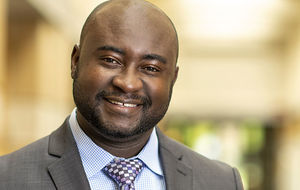"Governing Water for Africa's Urban Poor: Opportunities and Limits of Citizen-State Coproduction," by Ellis Adjei Adams

Abstract
Nearly 70 percent of sub-Saharan Africa’s urban population lives in informal settlements where poor access to safe and affordable drinking water threatens the health and wellbeing of millions. However, public (state-based) and private (market-based) institutional arrangements for water supply have largely failed to improve safe water access for the urban poor, prompting interest in citizen-state coproduction as one viable alternative. However, little is known about the potential for citizen-state coproduction to improve access to water in Africa’s urban informal settlements. In this talk, I draw from Malawi’s experimentation with community-public partnerships (CPPs), a form of citizen-state coproduction, to answer the broader question of whether community-based water delivery holds promise for poor and underserved urban areas in the Global South. More specifically, I discuss whether citizen-state coproduction of urban water services can simultaneously improve water supply and lead to community development and empowerment.
Biography
Ellis Adjei Adams is an assistant professor of geography and environmental policy in the Keough School of Global Affairs at the University of Notre Dame. He is affiliated with Notre Dame’s Environmental Change Initiative and the Eck Institute for Global Health.
To register for this presentation, please fill out this form and you will receive the Zoom links. If you have any questions you may email them to Kara Primmer.
Virtual seminar series sponsored by the Environmental Change Initiative